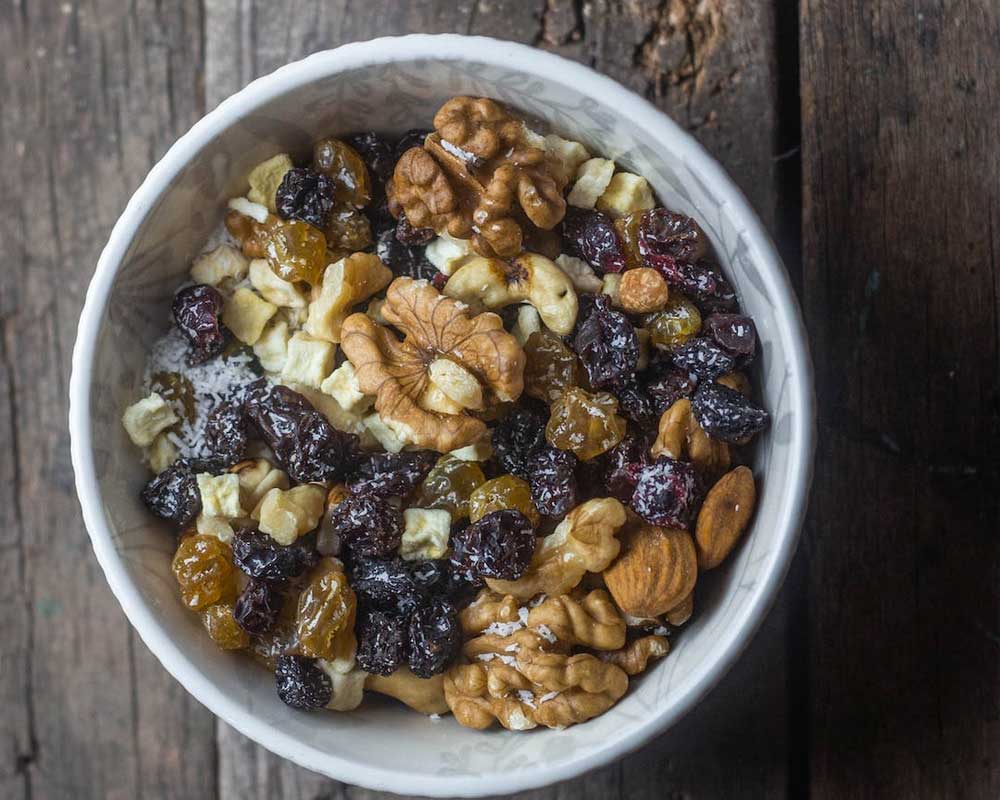
Foods High in Soluble Fiber: A Pathway to a Healthier You
In today’s fast-paced world, maintaining a healthy diet can be quite a challenge. We often find ourselves drawn to convenient, processed foods that are low in nutritional value. However, making conscious choices to incorporate more soluble fiber into our diet can lead to significant health benefits. In this article, we will explore the importance of soluble-fiber and discover a variety of foods that are not only rich in this essential nutrient but also delicious and easy to incorporate into your daily meals.

Understanding Soluble Fiber
Soluble fiber is a type of dietary fiber that dissolves in water to form a gel-like substance in your digestive tract. This unique property makes it an incredible asset to your overall health. Soluble fiber has been associated with numerous health benefits, including:
1. Lowering Cholesterol Levels
Soluble-fiber binds to cholesterol particles, helping to remove them from the body. This, in turn, can lead to a reduction in LDL (bad) cholesterol levels, decreasing the risk of heart disease.
2. Regulating Blood Sugar
Consuming soluble fiber can slow down the absorption of sugar, preventing rapid spikes in blood sugar levels. This is particularly beneficial for individuals with diabetes or those looking to maintain stable energy throughout the day.
3. Promoting Healthy Gut Bacteria
Soluble fiber acts as a prebiotic, nourishing the beneficial bacteria in your gut. A healthy gut microbiome is essential for digestion, immune function, and overall well-being.
4. Aiding in Weight Management
Foods rich in soluble fiber tend to be more filling, helping you control your appetite and reduce overall calorie intake. This can be a valuable tool for those on a weight loss journey.
Delicious Sources of Soluble Fiber
Now that we understand the incredible benefits of soluble fiber, let’s delve into some delicious and nutritious sources that you can easily incorporate into your diet:
1. Oats
Oats are a fantastic source of soluble fiber, with beta-glucans being the star player. Enjoy a warm bowl of oatmeal for breakfast or add oats to your smoothies for a satisfying and heart-healthy start to your day.
2. Legumes
Beans, lentils, and chickpeas are loaded with soluble-fiber. You can create hearty soups, stews, or salads with these legumes to increase your fiber intake and boost your protein consumption.
3. Fruits
Fruits like apples, pears, and citrus fruits are not only delicious but also rich in soluble fiber. Leave the peels on for an extra fiber boost or snack on them throughout the day.
4. Vegetables
Broccoli, carrots, and Brussels sprouts contain soluble fiber that supports digestive health. Roast or steam these veggies as a side dish or add them to your favorite stir-fry.
5. Flaxseeds
Flaxseeds are a powerhouse of nutrition, including soluble-fiber. Sprinkle them on your yogurt, blend them into smoothies, or use them as an egg substitute in baking recipes.
6. Psyllium Husk
Psyllium husk is a concentrated source of soluble-fiber and is often used as a supplement or added to gluten-free baking to improve texture.
7. Nuts and Seeds
Almonds, chia seeds, and sunflower seeds are excellent sources of soluble fiber. Incorporate them into your snacks or sprinkle them on top of salads for a delightful crunch.
Embrace a Healthier Lifestyle Today
Incorporating foods high in soluble-fiber into your daily diet is a simple yet impactful way to enhance your overall well-being. Whether you’re aiming to improve heart health, manage your weight, or simply feel more energetic, the power of soluble-fiber can make a significant difference. So, why not start today by trying out some of the delicious options mentioned above?
Remember, making small changes in your diet can lead to big improvements in your health. By choosing foods rich in soluble fiber, you’re taking a proactive step towards a healthier, happier you.
FAQs
1. How much soluble fiber should I aim for in my daily diet?
It is recommended to consume at least 25 grams of soluble fiber per day for optimal health benefits.
2. Can soluble-fiber help with digestive issues?
Yes, soluble fiber can help regulate bowel movements and alleviate constipation.
3. Are there any side effects of consuming too much soluble-fiber?
Consuming excessive soluble fiber can lead to bloating and gas. It’s important to gradually increase your intake to allow your digestive system to adapt.
4. Can I find soluble-fiber supplements?
Yes, you can find soluble-fiber supplements like psyllium husk powder in most health food stores. However, it’s best to get your fiber from natural food sources whenever possible.
5. Are there any specific recipes you recommend for incorporating soluble fiber into my diet?
Try a hearty lentil soup or a colorful salad with beans, chickpeas, and vegetables for a delicious and fiber-rich meal.
Read More
Does Pea-nut Butter Make You Gain Weight? Debunking the Nutty Myth
Bana-nas and Diab-ete: A Sweet Affair with a Healthy Twist
Pota-toes and Diab-etes: A Heartfelt Exploration of the Connection
The Sweet Solution: How Mangoes Can Impact Dia-betes
Unlocking the Potential of a Low-Carb Diet: A Lifeline for Dia-betics
How to Prevent Diabetes: Taking Charge of Your Health
A Vegan Diet for Dia-betes: A Compassionate Path to Health and Wellness
How Many Carbs Should You Eat If You Have Diabetes?
Diab-etes Diet: A Journey Towards Health and Freedom
Diabetes Snacks: Delicious Choices for a Healthy Lifestyle
Cinamon and Diab-etes: A Sweet Spice’s Impact on Blood Sugar
